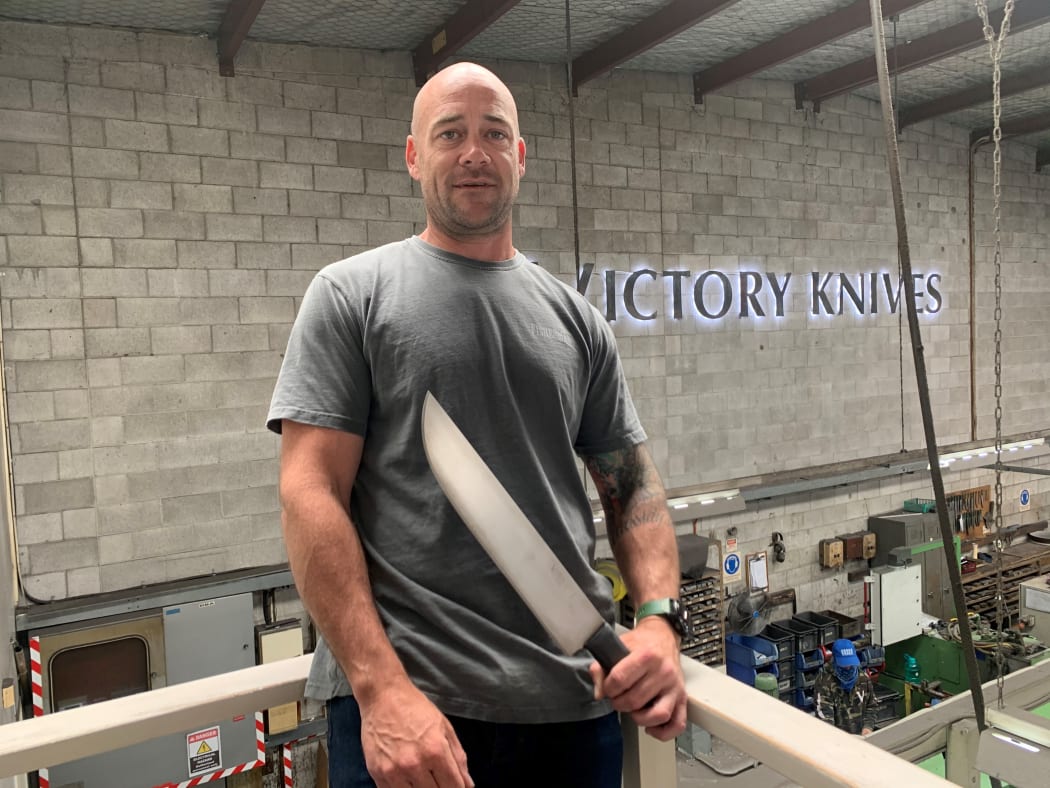You may not own a Victory knife, but chances are one has been used on the meat or fish on your dinner plate.

Photo: Gareth Hughes, Managing Director of Victory Knives
To understand how New Zealand’s oldest knife company has made such an impact on the everyday lives of Kiwis you have to look back at its history.
Victory Knives was founded nearly a century ago, when Edward Goddard, a master cutler from Sheffield, emigrated to New Zealand and began designing and manufacturing knives in 1927.
The company’s original name was New Zealand Cutlers and it mainly sold butchers’ knives, but when Goddard started manufacturing blades for World War II he imprinted the word ‘victory’ on them.
“Essentially the door was knocked on and said: ‘we need knives and you make them’. From what I can find in the history books around the business was the New Zealand and Australian army and obviously the American army (were Victory’s client) so the whole business pivoted to punching out a lot of combat style knives for them and pivoted back to that bread and butter (knives) post war times when everyone didn’t need to wander around with a big blade on their hip,” Victory owner Gareth Hughes told Kathryn Ryan.
Hughes bought the company in early 2018 after nearly a decade working as a general manager in the alcohol industry.
When he was in the market to buy a business, knives were not at the top of Hughes’ list, but he did have two prerequisites – that it was commercially viable and that he had an interest in it.
Luckily for Hughes he enjoyed hunting and fishing, so when he took a tour of the factory with a previous owner one Saturday he made an offer on the business the same day.
“I discovered Victory and realised that it was that white handled knife… (I) never really matched the brand to the white handled knife and made that connection but I’ve been working hard on changing that.”
Today the company produces knives for the major meat and fish processing plants in New Zealand and Australia, as well as knives for commercial divers.
The Mt Wellington factory makes more than 10,000 knives a month, with 50 percent of its blades exported and the other half sold to New Zealand clients.
The process, Hughes said, is a science.
First the steel arrives in New Zealand, from Germany, in sheets and is laser cut into 50 different blade shapes.
Next comes the most critical part – the hardening process.
“[It] goes into the furnace… they’ll sit at 1050 degrees for 20 minutes, then they go into a quenching oil which is a special oil to try and release the heat out of the steel to maintain the microstructure.
“Then from there we freeze them overnight at -70 degrees and then they get baked again twice. So, after all that, what sounds like a cooking experiment, you’ve got a raw piece of steel that’s the perfect hardness, in our opinion, for holding an edge but also keeping an edge as well in those working environments.”
Hughes is under no illusion where his company sits in the knives market and knows that manufacturing his product in New Zealand comes at a cost compared with imported goods.
He takes pride in quality over cost, he said.
“Given the environment that most of our knives are used in is pretty rigorous in the toughest environments, the easiest way for me to explain it to a lot of people is – most of our volume is our knives cut a lot of throats and breakdown animals.
“If you eat a piece of lamb or piece of steak that’s been processed in New Zealand, then there’s a really high chance that has met a victory knife through the process and within those environments it’s not about flash, it’s about doing the right job.”

